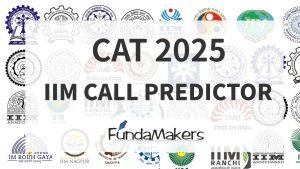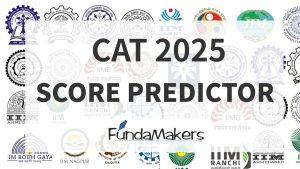Preparing for the Common Admission Test (CAT) requires a robust strategy, especially in enhancing reading comprehension skills, a critical component of the exam. Daily articles can serve as a powerful tool in this preparation journey. Engaging with diverse content not only sharpens your analytical abilities but also broadens your understanding of various subjects, ranging from economics to technology and culture. This blog will guide you through a curated selection of daily articles aimed at improving your reading comprehension for the CAT. Whether you’re a novice or a seasoned aspirant, these resources will help you navigate complex texts with ease, boost your vocabulary, and ultimately, elevate your performance in the exam. Join us as we explore the world of words and ideas, one article at a time.
A number of other entrance tests, including the IIFT, NMAT, XAT, and SNAP, also examine aspirants in this area. As a result, it is recommended that aspirants master reading comprehension in order to improve their chances of scoring high on the CAT verbal ability and reading comprehension sections.
What kind of article does this blog cover?
This blog covers every random and common reading comprehensions which has come in CAT exam or other OMETs. The following are the topics covered:
- Economics
- World War
- Science and Technology
- Philosophy
- Law & Literature Movement
- Indian National Movement
- Constitution Based
- Psychology
Why Should You Know How to Deal with RCs?
Having a solid practice in reading comprehensions (RC) for the Verbal Ability and Reading Comprehension (VARC) section is crucial for qualifying the Common Admission Test (CAT) for several reasons.
Firstly, reading comprehension questions form a significant portion of the VARC section, often comprising nearly half of the total questions. This means that a good performance in RC can substantially impact your overall VARC score. Given the competitive nature of the CAT, excelling in RC can be a major differentiator among candidates.
Furthermore, RC questions test a range of skills essential for academic and professional success. These include the ability to understand and analyze complex texts, identify main ideas and supporting details, infer meanings, and critically evaluate arguments. Practicing RC helps develop these skills, making you more adept at processing information quickly and accurately, which is vital not only for the CAT but also for future management studies and career challenges.
In addition, RC practice enhances your speed and accuracy in reading and comprehension. The CAT is a timed exam, and being able to swiftly navigate through dense passages while maintaining comprehension allows you to allocate time more efficiently across different sections of the test. Regular practice enables you to develop strategies for tackling various types of passages and questions, helping you to manage time pressure effectively.
Moreover, reading comprehension practice improves your overall language proficiency, including vocabulary, grammar, and syntax. This broader language capability supports not only RC but also other aspects of the VARC section, such as para-jumbles, sentence completion, and verbal reasoning. A strong command of language facilitates better understanding and interpretation of questions, enhancing your performance across the board.
In essence, dedicating time and effort to RC practice is instrumental in building the cognitive and linguistic skills necessary to excel in the CAT. It equips you with the tools to approach the exam with confidence, ensures you can tackle the significant RC component efficiently, and prepares you for the academic rigor of management education and beyond.
How much weightage does RCs carry in CAT?
Reading Comprehensions (RCs) carry significant weightage in the Common Admission Test (CAT). Typically, the VARC (Verbal Ability and Reading Comprehension) section of the CAT includes a substantial portion of RC questions. Historically, RCs make up about 70% of the VARC section.
To provide a clearer picture, in recent years, the CAT has consisted of three sections: VARC, Data Interpretation and Logical Reasoning (DILR), and Quantitative Ability (QA). The VARC section usually comprises around 34 questions in total. Out of these, approximately 24 questions are based on RCs. This high percentage underscores the importance of RCs in the overall scoring of the VARC section.
Given the considerable weightage, performing well in RCs is crucial for a high VARC score. Since the CAT is a competitive and high-stakes exam, excelling in RCs can significantly boost your overall percentile, enhancing your chances of securing admission to top management institutes.
Understanding the weightage and importance of RCs, it is clear that focused preparation in this area is essential for a strong performance in the CAT.
Test your Caliber with us!
FundaMakers provide a series of RCs, and previous year questions based on RCs on our site. Tap on ” CAT Question Bank” and visit our Question bank section perfectly tailored for CAT aspirants.
CAT QUESTION BANK
Visit the link below to know some important things to do post CAT 2024 Exam?



